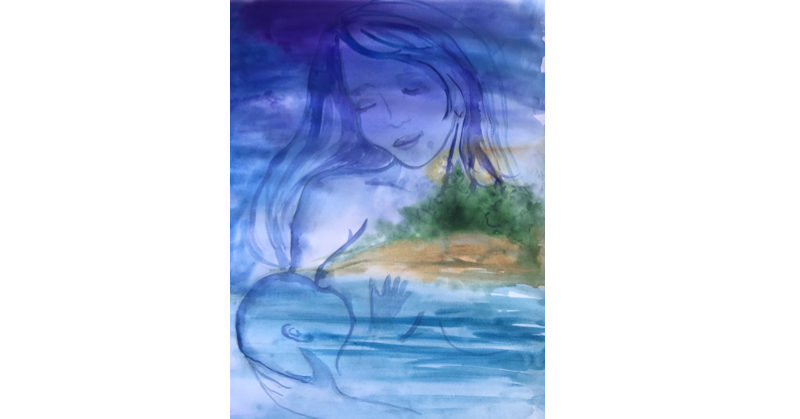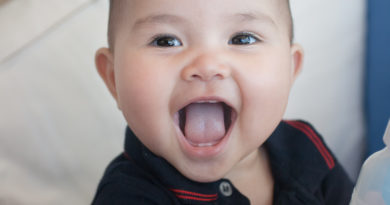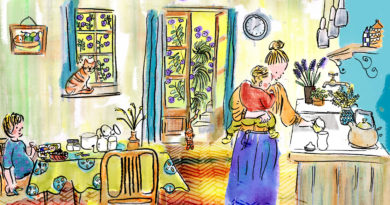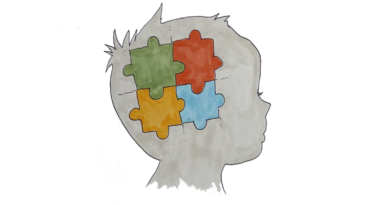Breastfeeding after Breast Cancer
It is well known that breastfeeding offers a certain protection against developing breast cancers. But what if a woman has had a breast cancer in the past or is diagnosed with one when she is pregnant: can she still breastfeed? Most women assume that breast cancer precludes breastfeeding. For some, it does. Others will be able to breastfeed. In all cases, emotional and practical support is needed. The La Leche League is here to help.
It was once believed that it was too dangerous to continue a pregnancy during cancer treatments, and so a woman with breast cancer was faced with a difficult decision: terminate the pregnancy and start treatment right away, or delay treatment and risk her own survival. When a pregnancy was continued, the birth was often induced early, thus putting the child at risk of complications due to prematurity. New research, however, shows good results for women who have surgery or chemotherapy for breast cancer during pregnancy. Pregnant women who receive timely therapies have similar survival outcomes to non-pregnant women of the same age treated for the same stage breast cancers and give birth to babies who show no long-term effects from the cancer treatments. Breast cancer cells do not pass to the infants, there are no more birth complications than for women without breast cancer, and no physical or developmental problems are seen as the children grow. Today, many women continue pregnancies throughout breast cancer treatments under the care of oncologists and obstetricians specialised in helping pregnant women with breast cancer.
There are two main treatment options available when dealing with breast cancer: surgery and radiation. Surgery will remove breast tissues, and radiation therapy may damage them. If a double mastectomy is necessary, both breasts will be removed entirely and breastfeeding will not be possible. A single mastectomy will remove one breast entirely and a lumpectomy will remove only the cancerous tumours and some surrounding healthy tissues. Radiation treatments may damage the milk-producing glands of the breast, thus inhibiting milk production partially or completely, or may result in a change in the appearance of the breast milk, making it look thicker and darker. There is no evidence that feeding babies this milk is dangerous, but some women choose not to feed from the breast that has been treated with radiation. It is entirely possible to breastfeed a child fully using only one breast. Breastfeeding of twins should also be possible, with a little imagination.
When you have had a treatment for breast cancer, it is best to ask your doctor directly when it is considered safe for you to start breastfeeding, and to discuss what options are available to you if you are taking long-term cancer medications (when/if you can stop in order to breastfeed, how long you should wait to breastfeed once you are no longer taking the medication, and when you should start taking the medication again).
However things turn out in the end – whether you can breastfeed fully, partially, or not at all…whatever your situation – wanting to breastfeed after breast cancer will have its own special challenges, and finding emotional and practical support will be am important first step. At best, attend a La Leche League meeting while still pregnant (www.lalecheleague.ch). Here, you can meet your local Leader(s) face-to-face, get some general tips about childbirth and getting breastfeeding off to a good start, and inform them of your situation so that they can brush up their factual knowledge about breastfeeding after cancer so as to help you better after the birth. Keep their phone numbers on hand so that you can call even from the hospital/birthing house if need be.
Breastfeeding supplies your baby with important nutrients and immunological factors to help him fight illnesses. It also encourages mother-child bonding and can possibly help you regain good feelings about your body after fighting breast cancer. If, however, you are unable to, or choose not to, breastfeed, it is still possible to give your baby physical closeness and comfort while using alternative feeding methods. In the end, loving and caring for a baby depends upon what is in the heart and not what is in the breast.
Information Sources:
There is much information available on the Internet. An Internet search under terms “breastfeeding with or after breast cancer” will provide a wealth of information, some of a more general nature and some with quite specific medical information. To ensure you’re reading reliable information, please check that you’re on a reputable site.
Some information sources I looked at:
https://www.cancer.gov/types/breast/hp/pregnancy-breast-treatment-pdq and references within:
Hoover HC Jr: Breast cancer during pregnancy and lactation. Surg Clin North Am 70 (5): 1151-63, 1990. [PUBMED Abstract]
Gwyn K, Theriault R: Breast cancer during pregnancy. Oncology (Huntingt) 15 (1): 39-46; discussion 46, 49-51, 2001. [PUBMED Abstract]
Rugo HS: Management of breast cancer diagnosed during pregnancy. Curr Treat Options Oncol 4 (2): 165-73, 2003. [PUBMED Abstract]
Barnavon Y, Wallack MK: Management of the pregnant patient with carcinoma of the breast. Surg Gynecol Obstet 171 (4): 347-52, 1990. [PUBMED Abstract]
Gallenberg MM, Loprinzi CL: Breast cancer and pregnancy. Semin Oncol 16 (5): 369-76, 1989. [PUBMED Abstract]
https://www.cancer.org/cancer/breast-cancer/treatment/treating-breast-cancer-during-pregnancy.html
http://www.lbbc.org/ and subpages.
By Bethany Brupbacher
Beth has been an LLL Leader for almost 10 years. She has a particular interest in cancer because, unfortunately, this is disease that is rather prevalent within her own family. She feels deep sympathy and empathy with people who have cancer and especially with the families and friends who surround them. Luckily, much research is still being done in this field and better and less aggressive cancer treatment options are becoming available all the time. Beth is hopeful that someday cancer will be an illness that is not life threatening.
Illustration by Masha Ellis
Masha works as a product manager in the finance industry during the day and dedicates her spare time to art, cooking and her traditional nutrition blog. She is Australian with Ukranian roots and now lives near Lake Zurich with her little girl. To find out more, follow her on Facebook or visit her blog.




